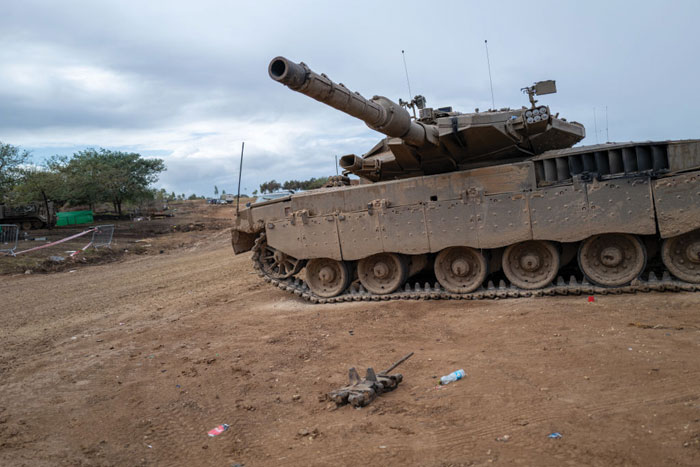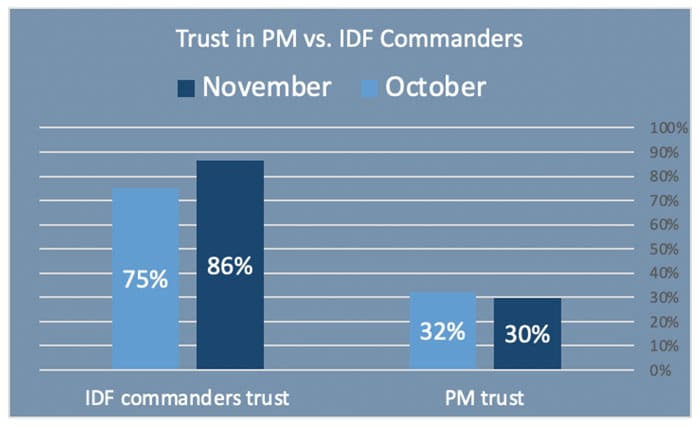 Spencer Platt/Getty Images
Spencer Platt/Getty Images “Si vis pacem, para bellum.”
“If you want peace, prepare for war.” That’s an old Roman adage. If you want peace, convince Israel’s enemies that it is ready to wage war for as long as it takes until its goal – uprooting Hamas – is fulfilled.
As I write this column, there is a ceasefire in Israel, and hostages are slowly returning from their forced abduction. It is a trickle of relief from human suffering. A child, an elderly woman, and another child, and a mother. Every day the names of people slated to be released is passed along – every day a much longer list of Israelis not slated to be released is implicitly conveyed. When 13 or 14 Israelis go back to their homes, more than 200 do not. When 50 go back to their homes, more than 150 remain.
The ceasefire is the result of two completely different objectives. Israel’s objective is to save as many hostages as possible before it goes back to war. Hamas’s objective is to use the slow release of hostages as a way to bring the war to an end.
As you read this column, maybe there’s still a ceasefire, and more hostages are released. Maybe there’s war. Maybe there’s war and renewed talks about another ceasefire. Whatever the case, it is important to note that the ceasefire is the result of two completely different objectives. Israel’s objective is to save as many hostages as possible before it goes back to war. Hamas’ objective is to use the slow release of hostages as a way to bring the war to an end.
These two objectives cannot be reconciled unless someone – the U.S., Egypt, Qatar – becomes convinced that for Israel the uprooting of Hamas must happen. That for Israel, the end of Hamas rule in Gaza is not negotiable. That no prolonged ceasefire, and no release of hostages is going to gradually erode Israel’s position from the outset of this war: Hamas no more.
Is the world convinced that such an outcome, the one Israel wishes for, is the only possible outcome of the war? I’m not sure that it is. A ceasefire, both historically and psychologically, is often seen as a prelude for a prolonged ceasefire, which itself is a prelude to the end of hostilities. In the 2006 Lebanon War, a ceasefire announcement resulted in a last minute attack with many casualties, and then ended the war. In the 2014 operation in Gaza, a first ceasefire broke down shortly after it was slated to begin, a second one also failed to materialize, a third proved insufficient, but ultimately, a fourth ceasefire brought about the end of the war.
So, for Hamas to hope that a few more days of ceasefire could lead to a negotiated compromise that would end the war is not inherently irrational – except that in this case it is. Because this time Israelis are adamant as they ponder their options for the future. Not all of them agree on all the details concerning the day after the war: Some Israelis want to see Jewish settlements in Gaza, some don’t; some Israelis want to see the Palestinian Authority taking over Gaza (President Joe Biden’s objective), and some don’t; some Israelis fantasize about a wave of Gazans leaving the area to live elsewhere, some think this plan is, well, a fantasy. But there’s no one who says let Hamas stay. The end of Hamas rule is a precondition to all future arrangement.
In fact, it is almost impossible to imagine an Israeli government telling its citizens that because of this or that – American pressure, operational difficulties, political disagreements, bad weather, whatever – the objective of the war is no longer to eliminate Hamas rule. It is almost impossible to imagine an Israeli leader conveying such message without losing his or her ability to have a political career. Uprooting Hamas is a precondition for all alternative futures – and Israelis understand this goal to be of existential magnitude. They want it achieved – no matter the cost.
So, if the Arab world, or other international players who truly abhor the bloodshed – as we all do – would like the war to end sooner rather than later, and with fewer casualties rather than more – there’s a simple undertaking they could burden themselves with: Convince Hamas that it’s over, and force its leaders to capitulate, to escape, to give up. A ceasefire is a good a time as any to convey such message.
Qatar, a sponsor of Hamas, ought to realize that its investment had gone sour. That it better cut its loses, and thus save many Gazan lives. Egypt, an important and highly involved neighbor must deliver the same message to Hamas leaders. Iran must get this message from someone too: No matter how many resources and energy you, Iran, intend to throw into this battle, the case of Hamas is closed. So, you better move on to the next bloody horseplay.
You want the war to end? Prepare to carry it for as long as it takes. As you read these lines – whether there is still a timer on a ceasefire or not – Israel seems prepared to do just that.
Something I wrote in Hebrew
Among Jews in Israel there is no great enthusiasm for the arrangement that can be called “PA-rule in Gaza”. Twelve percent support an arrangement of “rule by the Palestinian Authority and Israel’s security responsibility.” Another 12% agree to “some kind of Palestinian government (it doesn’t matter which one), provided that the Strip is demilitarized.” “Some kind” could mean the Palestinian Authority. In total, 24% would accept PA rule over Gaza. There are more Jews in Israel who would not accept the PA. They want full Israeli rule in the Gaza. Nine percent want full rule over the entire territory, and another 24% want rule over the entire territory, which also includes the return of the Israeli settlements. Who are the Israelis who want this? Mainly coalition voters. Sixty percent of them chose one of the two full-control options. Among the opposition voters, only 9% chose one of these two.
A week’s numbers
While trust in the PM was unchanged in the first month of the war, trust in the high command of the IDF had gone up significantly.

A reader’s response:
Yuri Aronson asks: “How long after the war is a new election in Israel expected?” My answer: There is no set date for such a thing, but Israelis expect it to come three to six month after the war is over (what “over” means is also an open question).
Shmuel Rosner is senior political editor. For more analysis of Israeli and international politics, visit Rosner’s Domain at jewishjournal.com/rosnersdomain.























 More news and opinions than at a Shabbat dinner, right in your inbox.
More news and opinions than at a Shabbat dinner, right in your inbox.